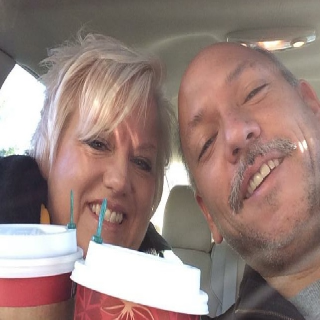50 States · 50 Starbucks · $50,000
The Inspiration
Mike Hammontree (@mikeh on Instagram), a social media influencer focused on all things travel-related, started this campaign to raise crucial funds for ALS Research at the ALS Therapy Development Institute in honor of his Aunt Terri who was diagnosed with this awful disease in Janaury 2015 and is still fighting. Her morning, noon, or night Starbucks beverage is one of the best parts of his Aunt Terri's day.
The Plan
Mike plans to travel to all 50 States in the USA, visiting a Starbucks location in each one to honor his Aunt Terri. This awareness across America promises to raise funds necessary for the research and development of a cure for so many people inflicted with this life ending disease.

About the ALS Therapy Development Institute
The ALS Therapy Development Institute (ALS TDI) and its scientists actively discover and develop treatments for ALS. It is the world’s first and largest nonprofit biotech focused 100 percent on ALS research. Led by people with ALS and drug development experts, ALS TDI understands the urgent need to slow and stop this disease.
Based in Cambridge, MA, ALS TDI has over 30 full-time, industry trained, drug development experts on staff. ALS TDI is internationally recognized as a leader in optimizing preclinical models of neurodegeneration for clinical translation, and partners with pharmaceutical companies and biotechs around the world. Rated a CharityNavigator.com four-star charity, ALS TDI spends 87% of each dollar raised on research to find an effective treatment and cure. Visit www.als.net.
About ALS
Every 90 minutes, someone is diagnosed with ALS, also known as Lou Gehrig's disease or Motor Neuron Disease (MND). It is a progressive, neurodegenerative disease that causes muscle weakness, difficulty breathing and swallowing, and paralysis while leaving the senses intact. ALS attacks certain cells in the brain and spinal cord needed to keep muscles moving. Most people survive two to five years after their diagnosis, with an estimated 30,000 people in the US and 450,000 worldwide living with the disease. Currently, there is no effective treatment nor cure.